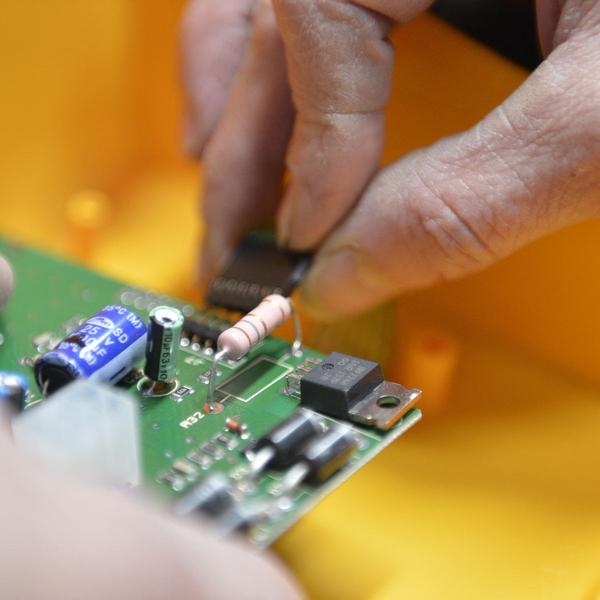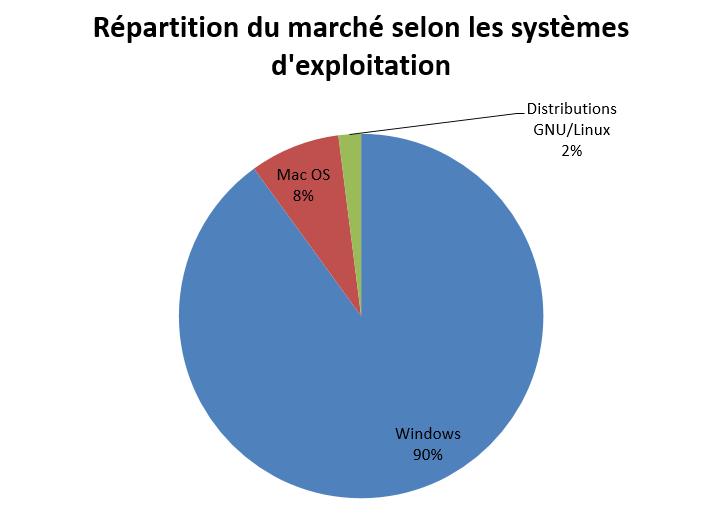Industry: five questions about the shortage of electronic components that paralyzes some French companies
For more than a year, semi-conductors, these electronic components mainly produced in Asia, have been running out, penalizing the entire French automotive industry.
Article written by franceinfo with AFPFrance TélévisionsPublishedUpdated Reading time:3 min.The consequences of the Covid-19 crisis are being felt even in French automobile production. For more than a year, the electronic components industry has not kept pace. Semiconductors are running out and this planetary shortage has led some French manufacturers to temporarily shut down. Franceinfo returns in five questions on this crisis.
1What are semiconductors used for?
Semiconductors are electronic chips which "allow information to be transmitted, stored and calculated", explained in May to franceinfo Mathilde Aubry, economist and teacher specializing in digital transformation at the Normandy School of Management. .
Due to the essential nature of these components, the shortage affects multiple production chains: in the automotive, electronic devices, payment cards and game consoles sectors, in particular.
2How can this shortage be explained?
This lack of microchips is multifactorial and the Covid-19 pandemic is one of the explanations. At the heart of the health crisis, the demand for electronic objects increased while the production system was idling.
The economy's rapid recovery surprised chipmakers, which struggled to keep up with demand. "The semiconductor sector is extremely complex, explained Mathilde Aubry in May. It is very difficult to balance demand there. The cyclicality of the market is an integral part of its operation."
3Which companies are shut down in France?

It is the automotive sector that is the most affected on French soil, since these electronic elements now equip all cars. "The shortage is particularly strong in automotive because they are specific components and because for the past two years the automotive industry has experienced a fairly deep recession. There was not much production capacity left [of chips ] intended for this industry", explained in February on franceinfo Michel Fouquin, economist, specialist in international trade and Asian countries. The Swedish heavy goods vehicle manufacturer Scania announced on August 30 to suspend its production of trucks for a week in Sweden, France and the Netherlands because of this shortage. The management of the Stellantis factory (PSA and Fiat Chrysler) in Sochaux (Doubs) notified, in a press release, the end of the activity of night shift until further notice. "We have enormous customer demand. We would have plenty to strengthen our teams with overtime. But for that, we need semiconductor parts", regrets François Guillerey, from Unsa PSA Sochaux, at France Blue Belfort-Montbeliard.
Finally, the Toyota factory in Onnaing, near Valenciennes (North), remained closed for two weeks, until September 6. The Japanese manufacturer announced a 40% drop in its global production in September due to the shortage of semiconductors, details France Bleu Nord.
4How long can this shortage last?
Flavien Neuvy, economist, director of the Cetelem Observatory, explained on September 2 on franceinfo that it will "certainly be necessary to wait several quarters, or even more than a year, for a gradual return to normal" in the automotive sector. In the event of the purchase of a new vehicle, the consumer will have to expect "delivery times which are getting longer", he adds.
French semiconductor materials maker Soitec sees the current shortage lasting "easily six to nine quarters", i.e. until the end of the first quarter of 2023 or the fourth quarter of 2023, said its chief executive Paul Boudre at the microphone of Radio Classique Friday, September 3.
5Is Europe planning to relocate chip production?
The semiconductor industry is almost entirely concentrated in the hands of a few companies based abroad. The Taiwanese TSMC alone accounts for 70% of world production. Faced with this crisis, the relocation of production is indeed one of the avenues envisaged by Europe, which provides for a doubling of the continent's production capacity in semiconductors by 2030. "The United States and we are exactly the same, we only produce 10% of semiconductors in our territories. We have decided to increase to 20% in the next ten years, "said European Commissioner for the Internal Market, Thierry Breton, in June. the AFP.
To achieve this, the Commission then announced a European "alliance" bringing together all the players in the semiconductor chain.
View commentsShare :







